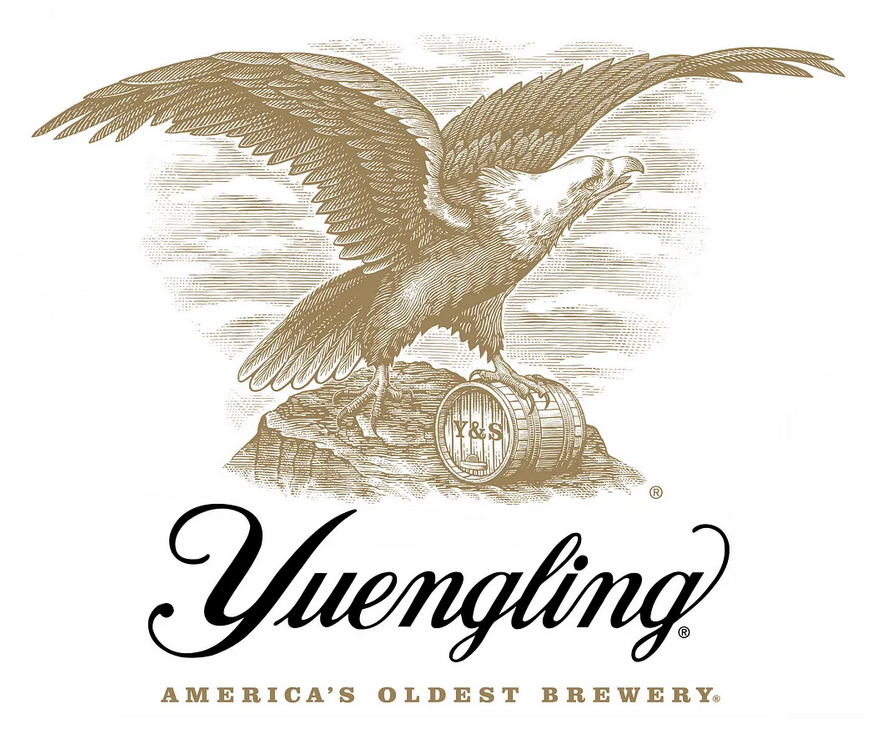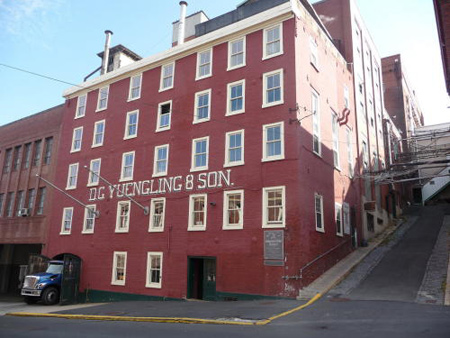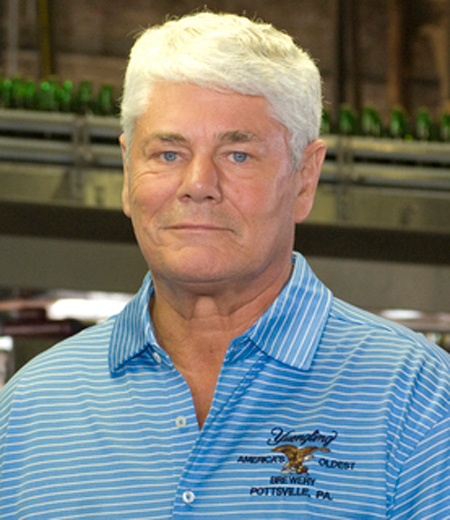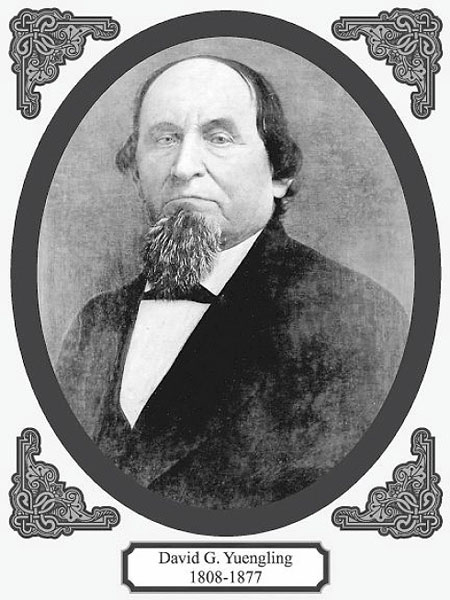The Whole Story of Yuengling

By GREGG KIRK
Big Shout Magazine, August 1995
It was one of the hottest days of the year, and the wheel balance of my car was so off that I couldn’t reach speeds faster than 65 m.p.h. without experiencing a shimmy that practically shook the steering wheel from my hands. I was to later find out that my right-front tire had worn through the steel radials and was in serious danger of blowing out as I traversed the mountainous roads leading to Pottsville, PA. But I didn’t care. More important things were at hand. I was heading to the country’s oldest brewery, D.G. Yuengling & Sons, where I would meet and interview owner Dick, Jr. and drink a cold Amber Lager pulled from the bottling line by the owner himself.
The fifth-generation Yuengling would tell me of his current problem of not being able to keep up with the demand for his products, but eventually we broached the subject of how it all began — back in 1827, when Dick’s great, great grandfather, D.G. Yuengling arrived in Baltimore on a boat from Wartenburg, Germany
Actually, things began further back — in 1802 when a vein of anthracite was discovered and Pottsville was changed into a coal-mining town almost overnight. This thriving community, good water supply, and location were apparently what attracted D.G. to the area, where he opened the still-standing facility in 1829 and called it the Eagle Brewery. The original plant probably turned out about 600 barrels of beer per year which was sold locally in kegs. Lager and Porter where the first two products known to be sold from that facility. D.G., a stickler for quality, according to Dick, Jr. ran the plant until his death in 1876.



D.G.’s son, Frederick, soon took over after he made a pilgrimage to Germany, where he learned the brewing process. He died in 1899, but before he passed on, he sold the business to his son, Frank. Frank ran the brewery for 64 years and through some of the toughest times the business faced. During the Prohibition era, the plant survived by producing “near beer,” a grain drink that had its alcohol removed by a “de-alcoholizer” that actually remained in the building until the mid-’50s. This concoction was sold to the local bars, where it was promptly spiked with grain alcohol, when the Feds weren’t looking.
In 1963, Dick Sr. and his brother Dohrman bought the plant from Frank’s estate during a bad period for small breweries. It was a time when the larger companies were ruling the entire country, and so many smaller facilities were being shut down that it looked as if the U.S. would only support four or five large beer companies.
It was during this time that Dick, Jr. began working odd jobs at the plant. “From the time I was 15, I worked here,” Dick says. “And from that time on, my father tried to discourage me from doing it.” Dick, Jr. finally quit in 1973 after a dispute with his father but was asked to buy the facility back in 1984, when Dick, Sr. took ill with Alzheimer’s disease.
In 1979, things changed for the better for the microbrewery. “It was our 150th anniversary and the local market really got behind the brewery in support,” he says. “CBS did a special, and we received a lot of positive publicity.”
But things didn’t really turn around for the plant business-wise until Dick, Jr. hired marketing and sales manager Dave Casinelli in 1985. That year, the facility was churning out 130,000 barrels per year and had what Yuengling describes as an “inexpensive, coal-region beer image.” After serious pressure from Casinelli to change that to a “gourmet beer image,” by launching an expensive marketing and packaging campaign, Yuengling relented, and the brewery capped this with the introduction of its Amber Lager in 1988. In 1990, the flood gates opened. Yuengling was suddenly a hip beer, and young, college types in Philadelphia suburbs bought it by the truckload.
Yuengling’s Porter was also recognized by beer connoisseur publications, and its Black & Tan literally created a segment of the beer market when competing breweries released copycat versions of it. In 1995, Yuengling is brewing 300,000 barrels per year and cannot keep up with the demand. “We are absolutely, flat-out running out of beer,” says Dick, Jr. “We’re not able to supply our wholesalers with our product. Kegs are filled, shipped that day, sold, and tapped within a day. I never dreamed I’d see this happen.”
Yuengling intimates that the brewery is toying with the idea of opening a second brewing site, but time will tell. At this point, the fifth-generation owner is just happy keeping his museum and gift shop in gear (25-30,000 people visit per year), and providing the Delaware Valley with some of the best beer in the country.